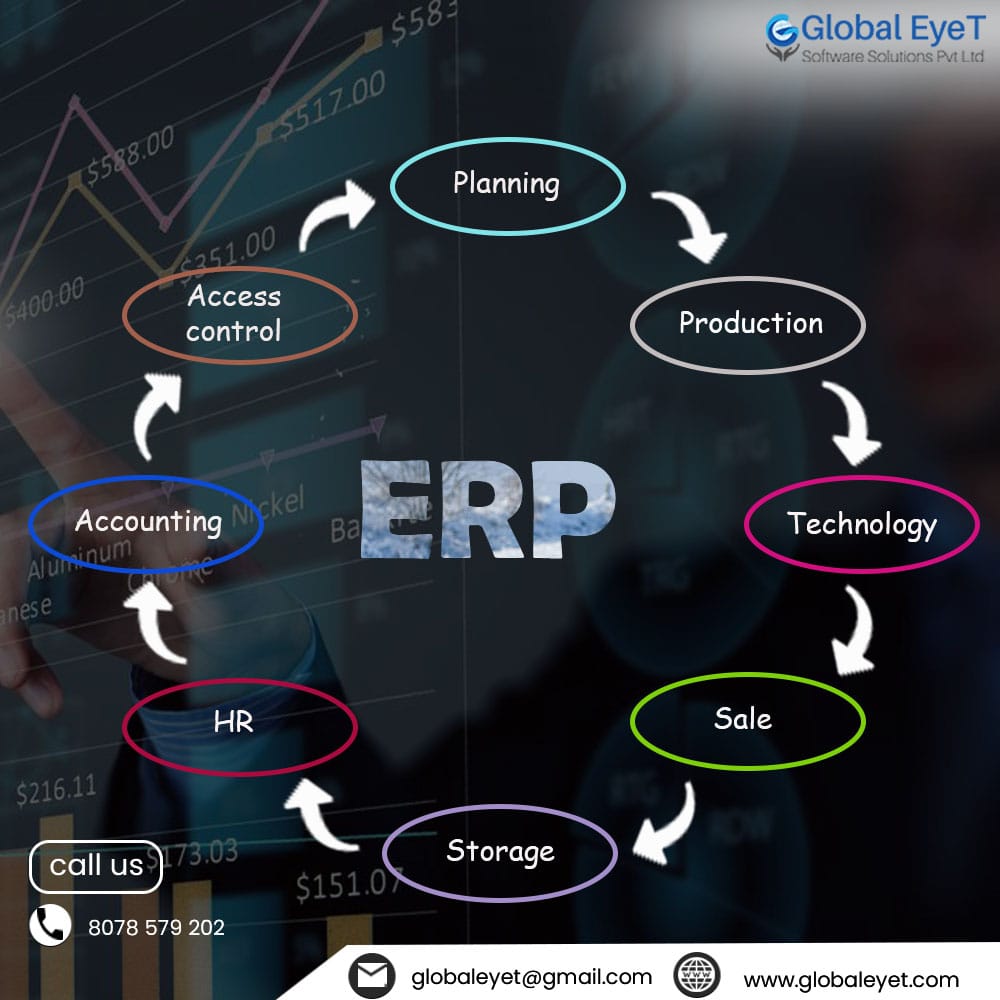Enterprise resource planning (ERP) is that the integrated management of main business processes, often in real-time, and mediated by software and technology. ERP is typically mentioned usually referred to as a category of business management software, typically a suite of integrated applications, that an organization can use to collect, store, manage, and interpret data from many business activities.
ERP provides an integrated and continuously updated view of core business processes using common databases maintained by a management system. ERP systems track business resources—cash, raw materials, production capacity, and therefore the status of business commitments: orders, purchase orders, and payroll, etc.
Benefits of ERP Software:
Streamlining Operations: ERP software stores data across an organization. Right from a company’s warehouse management to its administration, it keeps track of all the information relevant to the activities.
Decreased Software Overhead: As ERP software allows companies to consolidate other tools, they will free themselves from handling separate software for core HR, CRM, supply chain management, and other tasks. It lets companies control everything through a centralized system.
Workflow Automation & Enhanced Accessibility: With the help of Artificial Intelligence and Natural Language Processing technologies, ERP software can automate business routines like customer service, project management, and more.
In-depth Analytics: Unlike other standalone systems, ERP software provides detailed analytics of the information from across an organization. It offers insights and granularity of business processes via an intuitive dashboard.
Standardization of Human Resources Information: Many ERP software offer core HR functions like payroll, scheduling, clock, and management. The time clock helps an ERP system to calculate payroll. Besides, the managers can view employee’s information while creating schedules.
Increase in Communication: As ERP software makes complete business data available in one place, employees of the corporate can gather to plan and track business events. Many advanced ERP systems allow employees to make progress reports and indicate inventory levels.
Enterprise resource planning software may be a tool that integrates all functions to a system that serves the precise needs of the organization such as product planning, parts purchasing, internal control, product distribution, and order tracking. There are varied components of ERP in every sector and organizations make use of them consistent with their domain. Major components are Human Resources, Manufacturing, Supply Chain Management, Project Management, and Customer Relationship Management.
If it is a manufacturing product based company, there are a series of processes to follow to urge the ultimate product out like design, implementation, packaging, etc. Each department fulfills its requirement but not anyone is conscious of the overall issues and challenges why the organizational objectives are not met as planned. Also, the deadlines required by other departments are to be tracked for the overall performance and goal achievements.
Here ERP helps to speak with one another department by showing real-time data in software where the merchandise is at a particular stage. Moreover, there is improved communication with suppliers and customers, updating in real-time. This increases customer service and order fulfillment on time and reduces inventory.



